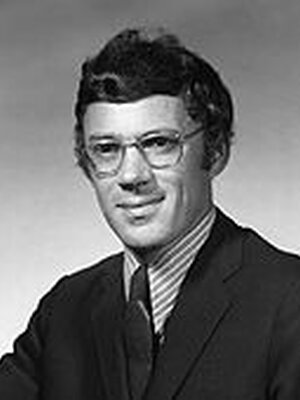
University of Illinois colleagues remember Bill Flygare as "one of the most creative and dynamic physical chemists in the world." Shortly before his death in 1981, Professor Flygare was awarded the Irving Langmuir Prize in Chemical Physics and was cited for:
"outstanding contributions to the understanding of molecular electronic structure and molecular dynamics through the introduction of high resolution microwave techniques and other innovations; for his many contributions in other fields including light scattering in and structure of liquids; for setting an example of combined theoretical and experimental excellence in chemical physics."
Willis Flygare earned his bachelor's degree from St. Olaf College in 1958 and his doctorate from the University of California at Berkeley in 1961. He was a professor of chemistry at Illinois from 1961 until his death. During that period he developed a new experimental method involving the molecular Zeeman effect, and with it, he measured most of the known molecular quadrupole moments and magnetic susceptibility anisotropies. He developed a highly sensitive microwave spectrometer by combining molecular beams with Fourier transform techniques.
Professor Flygare received many awards for his work, including Guggenheim Fellowships in 1972 and 1978, the Phi Lambda Upsilon Fresenius Award in 1971, the Baekeland Medal in 1973 and the Irving Langmuir Prize in 1981. He was elected to the National Academy of Sciences in 1974 and was awarded an honorary doctorate from St. Olaf College in 1976.
View the biographical memoir by David Chandler.